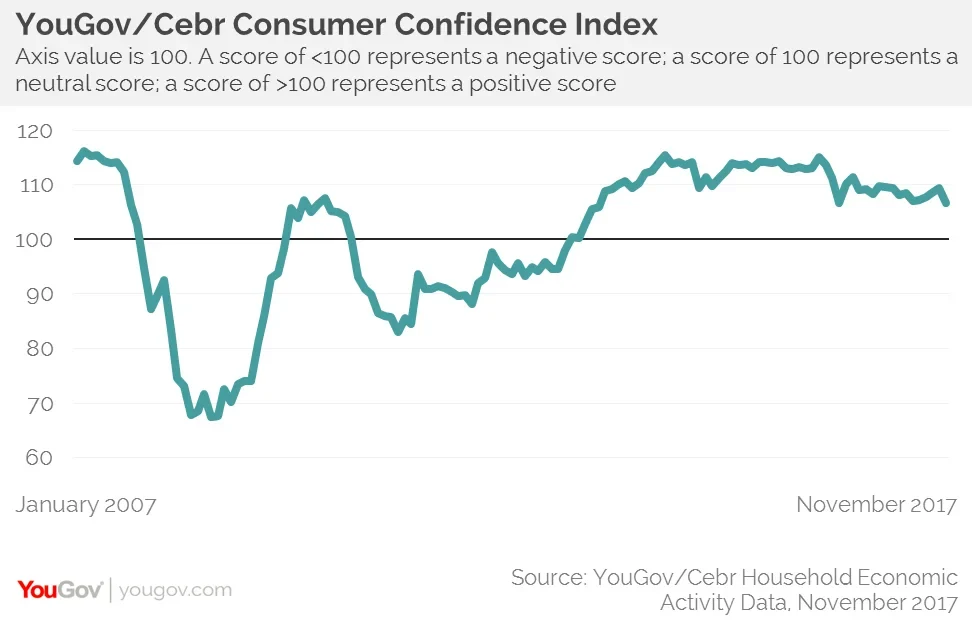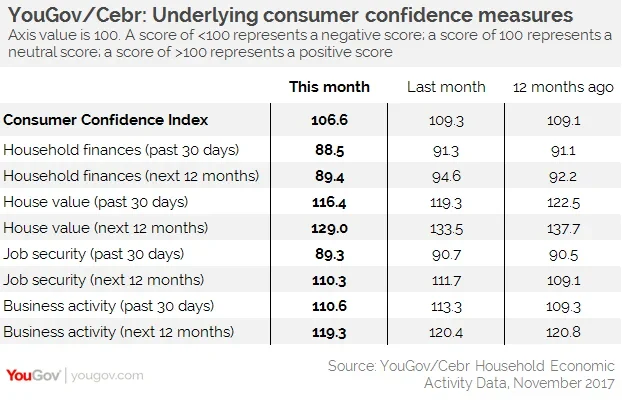UK consumer confidence has fallen by its largest amount since the month following the EU referendum
The YouGov/Cebr Consumer Confidence Index stands at 106.6 this month – down from 109.3 in October. While any score over 100 means more consumers are confident than unconfident, this month’s Index is at a level not seen since July 2016, the month following the vote to leave the European Union.
YouGov collects consumer confidence data every day, conducting over 6,000 interviews a month. Respondents are asked about household finances, property prices, job security and business activity, both over the past 30 days and looking ahead to the next 12 months.

There have been falls across the board, with all eight underlying measures – four backwards-looking and four forward-looking – declining in November. The score for household finances over the past 30 days has fallen to its lowest level since January 2014, while the metric looking at consumer expectations for household finances over the next 12 months has fallen by its biggest monthly amount since October 2016.
The property price measures have also fallen. The score for house values over the past 30 days has fallen to its lowest level since July 2013, while the metric looking at homeowners’ expectations for house values over the next 12 months has fallen to its lowest point since July 2016.

This month has seen consumer confidence damaged by a range of factors. The first interest rate hike in over a decade triggered fears that higher borrowing costs will compound the inflation-induced squeeze on household incomes. Simultaneously, higher rates and a housing market in slowdown are warning signals for many homeowners, who fear house price growth may be further dampened.
With these economic headwinds set to persist, and the OBR forecasting weaker growth, households are understandably worried. Overall, these are a gloomy set of consumer confidence figures.
Image from Getty








